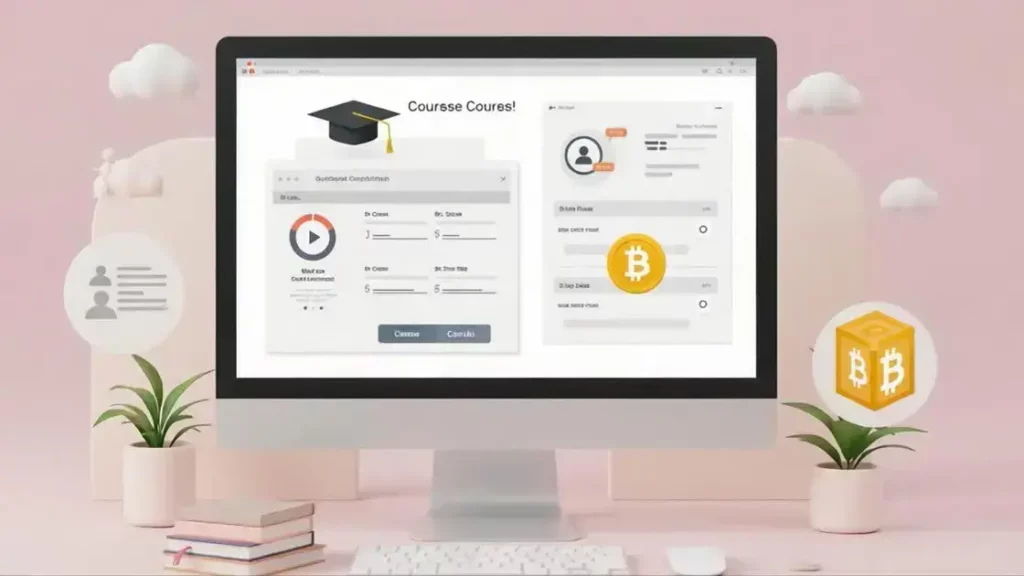Leitura: 6 minutos Elevate your career risk-free: discover how free online certification courses are rewriting the talent playbook for ambitious leaders. In a world demanding agility and digital credentials, understanding what’s available can become your shortcut to sustained competitive advantage. Dive in for the latest strategies to outpace the market—without breaking the bank.
Why Free Online Certifications Surge
Free certification courses are flooding the digital marketplace, led by universities, global tech giants, and disruptive startups. The accelerated shift to remote work and the war for digital skills have forced both individuals and enterprises to rethink professional development investments.
- Low entry barriers: Costs become negligible, so talent from anywhere can participate.
- Globalization of credentials: Certificates from top institutions are now accessible to millions worldwide, not just a selected few.
- Agility: Learners can instantly pivot into high-demand fields like data science, AI, or cybersecurity.
In practical terms, this opens doors for professionals sidelined by high tuition fees and allows businesses to groom talent internally. The key insight for market leaders: free certs are no longer just nice-to-have—they’re strategic assets that can realign your labor supply chain. Are you leveraging these for your talent pipeline?
What Platforms Dominate This Space?
The free certification landscape is competitive and rapidly evolving as platforms double down on employer relevance and user engagement. Leaders include:
- Coursera: Partners with Ivy League institutions, offering audit options with no charge for learning content.
- edX: MIT and Harvard’s edtech darling, with a rich library of free courses and verified certificate upgrades.
- LinkedIn Learning: Unlocks key business, technology, and creative courses, periodically running open-access campaigns.
Some platforms, like Google’s “Career Certificates,” target direct employment with industry-recognized labels. The practical effect? Businesses can now hire or upskill with recognizable, consistent validation. The message for leaders is clear: monitor platform shifts closely to prevent your upskilling efforts from falling behind. Which ecosystem is your go-to for sourcing validated skills?
How Free Certification Impacts Hiring
Credential transparency and competitive market share for talent are fundamentally changing. As more candidates present online certificates from respected platforms, hiring managers are recalibrating their filters.
- Diversifying the talent pool: Recruiters gain access to self-driven individuals who excel in self-paced, tech-enabled learning.
- De-risking recruitment: Verified online credentials offer an early indicator of candidate skill and motivation.
- Shortening onboarding time: Pre-certified hires ramp up faster, translating to direct productivity gains.
For organizations, this means your intelligence of market needs to include a live pulse on digital credential trends—or risk missing emerging talent streams altogether. Are your hiring frameworks reflecting the new value of free certifications?
Risks and Quality Control Factors
Free doesn’t always equal quality—this is a core point in risk management. Without consistent third-party validation or standardized assessments, the signal-to-noise ratio of certificates can be unpredictable.
- Credential inflation: Not all courses offer legitimate value—beware of “empty” badges from unaccredited vendors.
- Varying delivery standards: The learning experience can fluctuate significantly between providers.
- Credential misuse: Some platforms may inflate success metrics, leading to false confidence in candidate capabilities.
In practice, vigilant review and a vetting process for accepted credentials are vital. The takeaway: free certificates are only as good as the rigor behind them. Do you have safeguards to ensure quality over quantity?
Trends: AI, Microcredentials and Future Growth
Tech disruption is accelerating. Artificial intelligence, microcredentialing, and adaptive learning platforms are redefining the boundaries of online education in the US.
- AI-driven personalization: Content adapts to learner profiles, boosting completion and mastery rates.
- Microcredentials & stackable certificates: Modular skills documentation is increasingly marketable and interoperable.
- Global market integration: US-based innovations are shaping credential recognition worldwide, impacting remote hiring and supply chains.
The message: Watch for tighter industry/education alignment and new verification tools as employers demand higher trust in online skill badges. Is your organization prepared to navigate this next wave of digital learning evolution?
